So here we come to my top twenty and, to be honest, it hasn’t been easy to do, and not because of the large number of fantastic movies vying for the top spot. No, because it’s been such a poor year for films that I’ve had to include quite a few films which are ‘good’, but no more than that. Do I really think that Mama, Epic and Flight are great films? No, I don’t, but because it’s been such a shoddy year and I’ve given very few films really high scores [only two films are worth 9/10 in my opinion], I’ve had to include them. I must also emphasise again that there are quite a few films I wanted to see but couldn’t, sometimes because of time, sometimes because I’ve just been too darn busy, and sometimes because I just need a few days break from movies! Philomena for instance: it’s not at all my ‘cup of tea’, so to speak, and therefore whatever else was out that week took precedence, but I’m sure it is almost as good as many say and if there had been nothing else I would have gone to see it. I was itching to see Cloudy With A Chance Of Meatballs 2, but I just could not find the time in what was a busy few weeks for films I wanted to see. And let’s not forget all the non-English language films which looked good and in many cases far more interesting than most of the muliplex fillers, but which weren’t shown locally to me. Without even seeing it, I just know that, for example, Big Bad Wolves is bloody good. And, of coure, I tend to avoid films I know I’ll hate, such as The Heat.
Anyway, here we go:
Well, you’re probably familiar enough with this critic’s writing to expect some animated movies on this list, though 2013 wasn’t quite as good a year as 2012 for the genre with some major disappointments from Disney, Dreamworks, Pixar and even others. Epic, though based on a book, initially came across as a variant on Arthur And The Invisibles with bits of Ferngully and others, but did much more with the concept of the discovery of a world of tiny people and ended up as good fantasy escapism with some truly exciting sequences, stunning visuals and amazing design work which sometimes bordered on jaw-dropping…and of course some great humour. The underrated Blue Sky remain up there with the best of the animation studios.
Though I know fellow critic Matt Wavish will disagree, it hasn’t been a very good year for horror in my book, though Mr Wavish does watch far more horror movies than I do and has probably seen every horror film made or released this year! The Conjuring just missed my top twenty list, so here we have Mama. Yes, it showed Mama too early and too much, thereby getting less scary as it went on, but some scenes still worked anyway, Mama was still a memorably hideous creation, the movie looked great, the performances were strong, and the whole thing became rather touching, ending up focusing on emotion more than anything else, a brave but worthwhile decision.
Denzel Washington sometimes seems to be to be wasting his obvious talents on the films he does, but he always seems to be enjoying himself, so maybe it doesn’t matter too much. In any case, he shows what he’s capable of in this compelling drama, which may open with a harrowing plane crash that is amongst the best of its kind, but after that concentrates on being a study of guilt, addiction and, hopefully, redemption. Certain elements seemed contrived but it refused to soft peddle the issues and I got so caught up I had to physically prevent myself in the cinema from yelling at Washington’s character to not do what he’s about to do at least twice.
Maybe it did have worthiness exuding from every frame, and it sometimes threatened to turn into a game of Spot The Star [and what odd choices some of them were too, but Forrest Whitaker and, honestly, Opray Winfrey more than made up for that], but The Butler still managed to make me feel rightfully angry [not enough films this year made me feel anything], the whole thing flew by, and this sentimental old fool will always go misty-eyed when he thinks of the words: “I want to protest with you”. Not enough movies these days dare to be corny and go straight for the heart. There’s something wrong when something like Iron Man 3 [as fun as it admittedly was] gets more attention than a film like this.
Even though I adored Drive and have been steadily making my way through Nicolas Winding Refn’s earlier work, I didn’t ‘get’ the man’s latest work at first. The whole thing just alienated me [something I reckon Refn would actually be pleased about] and I just couldn’t see the point. However, its seering images and extraordinary atmosphere stayed with me and grew and grew until I realised that, whether I enjoyed it or not, Only God Forgives is a film extremely worthy of merit and shows its director Refn moving into David Lynch territory. He’s already developed that genius’s ability to get under the skin in a way few can. As to what it’s all about, I now can’t wait to give the film another go.
Though its replacing of the real-life Spanish family with an American one felt somewhat wrong even to this hatred of political correctness, The Impossible was nonetheless a really strong disaster movie, beginning with a superb depiction of the 2004 tsumani which was executed entirely without CGI and, guess what, looked far better than any crappy similar CGI sequences, then turning into a really intense, almost agonising drama of search and survival, with some striking depictions of the physical and emotional affect of the disaster that certainly remained with me for quite a long time after seeing the film.
This is the first of two films by Ben Wheatley on this list, sure proof, if it wasn’t already evident by Down Terrace and Kill List, that Wheatley is one of the very best British filmmakers working today, so good that I actually can’t wait to see his Dr Who episodes even though I’m not really a fan of the show these days. The greatest joy of watching A Field In England is knowing that it’s simply the result of a few people going to a field and making a movie in a few days with very little money, but luckily the result was a quite stunning picture: puzzling, disturbing, original, yet still unmistakeably English.
With the exception of A Life Less Ordinary [and God how I’ve tried to like it], a Danny Boyle film is always a happy occasion. The man has an amazing ability to tackle an amazingly diverse array of subjects yet always make a work that is redolent of the sheer joy of movie-making. Trance is as different from 27 Hours as can be, yet still has that unmistakeable Boyle energy that sometimes threatens to burst off the screen. This devilishly clever thriller stuns you with its twisty plot, but is as good the second time round because more becomes clear and you realise that, despite what some said, the movie certainly does have a heart. A visual, aural and, yes, intellectual treat.
Despicable Me was hands-down the best animated film of 2010 [yes, better than the good but faintly tired rehash that was Toy Story 3], so there was no way the obligatory sequel would be able to match it. Despicable Me 2 though came surprisingly close, and I wanted to hail it as 2013’s best animated movie until bloody Disney finally came through with a cracker. Though it lacked most of the original’s twisted edge, Despicable Me 2 kept its heart and if anything increased the laughs [as comedy overall seems to get lamer, it can increasingly be found in better form in things aimed at children] while expanding its world. And I don’t care, I’m even looking forward to the laugh-riot that I know will be The Minions.
In mostly refusing to go for the usual thrills and spills, the sometimes almost unbearably intense Prisoners concentrated more on being a character drama and a study of morality which constantly asks the viewer: “What would you do”? Though it maybe made for a less popular movie, it was artistically the right decision, and anyway it still boasted an incredibly atmosphere of dread that stays with you for days. The performances by Hugh Jackman [Les what?]and Jake Gyllenhaal were Oscar-worthy, so good that some of the best scenes just involved the two actors talking. Towards the end things went downhill, but I guess that they were spoilt for choice in how to finish.
Thank God for Terrence Malick, a poet and an artist allowed to do his own thing in an increasingly dumb cinematic world that seems to be constantly narrowing its focus, a man who celebrates things like nature, beauty, philosophy, belief: things not much in evidence at the movies these days let alone it seems our increasingly dehumanised society. It’s very possible that twenty years ago, even ten years ago, I would have hated To The Wonder. It was as self-consciously arty as you can get, and therefore of limited appeal, though I think anybody should in some way to be able to appreciate a film in which Ben Affleck being in it is not a problem, or agree with me that, given the right role, Olga Kurylenko can be a screen goddess and light up the screen in an incandescent way [okay, maybe that’s just me], or appreciate the often gorgeous photography which climaxed in the most beautiful shot in cinema this year. Okay, Malick’s presentation of what after all was a pretty simple story simply asked for trouble, the refining of his filmmaking style now taking almost entirely the form of short, oddly edited shots and the camera dancing around people [who are often dancing themselves], and the characters were thin [unlike in Tree Of Life], though the idea was obviously to leave much unexplained and much to discuss. I certainly couldn’t stop thinking about it. In any case, what elegance! What exquisiteness! What beauty!
Whenever I think vampirism is being done to death or ruined by too much rubbish [I’m going to try and avoid saying the dreaded ‘T’ word!], something always seems to come along to restore the good name of bloodsuckers the world over, and this year it was the turn of Neil Jordan’s latest. I always seem to be in for a treat when this fine director does horror, and Byzantium did not disappoint, though sadly it didn’t make much of a splash at the box office [again, I’m going to try and avoid saying it!]. Then again, several of my top twenty films failed to pack ’em in, so that’s nothing new. A clever melding of typical vampire story elements with some new ones, Byzantium felt very fresh. It was at its heart a powerful mother and daughter story, and was intelligent enough not to make the mother seem like the villain all the time, while even turning Gemma Artherton into a good actress. Of course, the amazing Saoirse Ronan [in what was by far the best of her three films this year] stunned with a typically fantastic performance [it’s a shame she hadn’t achieved mega-stardom yet, though artistically that may be a good thing]. Jordan really seemed to enjoy himself with a tale that moved around in time and even employed flashbacks within flashbacks, while the film still had plenty of the red stuff and even made its obligatory love story [still not going to say it, though I want to!] just about work.
If you didn’t read my glowing review of The Seasoning House earlier this year, there is a distinct chance you may not have heard of the film. I will personally remember, for a long time to come, staggering out of the cinema emotionally shattered by what I had just seen. This film was painful and cruel, just as a story about wartime white slavery should be, but also honest [it’s based on true events] and a stunning directorial debut by Peter Hyatt who, assisted by his cinematographer and his composer, made an amazingly artistic piece that was often stunning to look at despite the nastiness it depicted, and he knew exactly when to dwell on something and when to pull back. Yes, the film was unpleasant but only felt a bit gratuitous near the end and by then we’ve surely earned the right to see the bad guys get wasted anyway. He was also helped greatly by the year’s best starring debut by Rosie Day, a performance of incredible power that won’t be recognised as it should be because of the nature of the film. The more action-orientated second half sometimes felt like it was from a different film, but throughout the whole thing Hyett demonstrated a mastery of pacing and storytelling and showed a great ability to create much out of little. I guess he could have gone the other way and made a more palatable, ‘commercial’ movie that would have been seen by more, but I don’t think that’s what this really talented filmmaker is about.
Despite writing for HCF, I have no shame in saying that I’m a huge fan of Disney cartoons. However, I felt that Tangled and especially Wreck-It Ralph, despite their commercial success, were distinctly lacking in the Disney magic, and the less said about some of the studio’s recent live-action stuff the better. Luckily, Frozen, if not quite up there with Pinnochio, Sleeping Beauty, The Lion King et al, managed to be a major return to form. It had all the tried and tested elements you usually find in a Disney’ Princess’ movie, and certainly ‘Disneyfied’ The Snow Goose [in fact it bore hardly any resemblance to it at all] but tried a few new things, including shock horror a Prince who turns out to be a bad guy, and a Carrie/ Matilda-type character who has immense powers but was still sympathetic. I still don’t think computer animated characters work as well as as hand-drawn ones, and I find it very sad that traditional animation is now a very rare thing at the cinema, but Frozen contained some stunning usages of it, the lengthy sequence where Elsa turns everything in sight to snow and ice one of the most breathtaking scenes of the year, with a real sense of the animators going as far as their imagination allowed. Genuinely dramatic, yet really funny when it needed to be, and with even good songs, Frozen was a terrific piece of entertainment. Walt would have loved it.
I know full well I’m cheating by including Sightseers, because it was released towards the end of last year, though said release was limited and far more people will have seen it at home anyway. In my mind it’s a 2013 film so I’m keeping it as one, so now it’s one of two films in a year when the brilliant Ben Wheatley twice proved how good a filmmaker he is with two films that are very different yet perfect examples of how to achieve a lot with little. An excellent black comedy, kind of a cross between Badlands and Nuts In May, Sightseers, which was even better than A Field In England, performed a brilliant balancing act with regard to its humour and its nastiness, never letting one element overshadow the other, and managed to make us like the central couple at the same time as horrifying us with their seemingly callous attitude to killing. Again, it was as English as a film can be, and continued the vague themes of Wheatley’s previous work [like all the berst directors, there are clear threads running through his stuff] despite not being written by him. Forget Bonnie and Clyde or Thelma and Louise, Steve and Alice, brilliantly played by Steven Oram and especially Alice Lowe in a role which was actually very difficult to make convincing, are now my favourite screen killer couple. Now, can someone give Wheatley a big budget to play with?
Although it’s not quite as impressive watched at home on a second viewing, Pacific Rim was by far the best of this year’s blockbusters [though depressingly, the lack of big stars and people in funny costumes meant that it wasn’t a hit in the US and the UK, though it was a success worldwide] and came some way to atoning for the general poor level of big budget Hollywood actioners like World War Z, Man Of Steel and The Lone Ranger. Guillermo Del Toro’s tribute to the Japanese mecha and kaiju films and TV shows was a wonderfully colourful and splashy spectacle with a hugely likeable innocence and genuine heart, something increasingly lacking in the big summer movies, and it was also gorgeous to look at. It was once said of the early, great Japanese monster movies that they were the result of sophisticated people working in a very unsophisticated genre, and this was Pacific Rim to a tee. Having something straight-forward and simple doesn’t mean that it needs to be stupid and appeal to its audience’s basest instincts, especially when that audience is meant to include young people. I still get annoyed at how Michael Bay harmed his Transformers movies [as fun as they are] with their smutty humour and leering shooting of their female characters. The story ended up rehashing Independence Day somewhat, but overall this film brought all the joyous fun that big robots fighting big monsters should. Hell yeah!
Though he made the best of the Harry Potter movies [which isn’t saying a whole lot], I’ve never been impressed much by Alphonso Cauron….until this amazing experience of a film, which, even if it didn’t have that film’s intellectual and abstract elements and is not quite as groundbreaking, could almost be called the 2001: A Space Odyssey of 2013 in that it really made you feel like you’re in space. For once I decided to see this in 3D and, while some scenes still looked silly as in every other 3D film [this being an unavoidable flaw of the format], for the most part it was very effective and ensured the film joined that very small group of movies that also include Hugo and Avatar, ones that really have to be seen in 3D to get the full impact. When it came down to it, Gravity was basically just a simple, stripped down story of disaster and survival, but was relentlessly gripping right from the very first scene, a single minded thrill machine that took the viewer into space, then dropped him or her back down to Earth very shaken but very stirred. Sandra Bullock showed, as she occasionally does, that she’s wasted in the lame so-called comedies that she seems to be mostly associated with [some have said the characterisation is thin, but I think it was enough for the film] while George Clooney wasn’t in the film enough to weaken it.
I’d all but written Quentin Tarantino off. Hell, I even wrote an article for this here website called What’s Happened To Quentin Tarantino? where I basically slagged the filmmaker off and said how he’s getting worse and worse, his films becoming increasingly self-parodic, unoriginal and boring. Endless ‘borrowing’ from films Tarantino likes, lack of heart, etc,etc, etc, as the King of Siam might say. So Django Unchained, though certainly nowhere near perfect, came close to blowing me away. I coudldn’t believe how good it was, from the brilliantly sketched characters to the knife-edge suspense to the great touches of humour, often devilishly mixed with other elements: the sight of the Klu Klux Khan riders unable to see because of their masks was unforgettable. Like Tarantino’s first two movies, this really was a film where this lover of visuals over chatter could just listen to the people in it talk to their heart’s content, while the film references only occasionally stuck out too much and I actually cared about the proceedings. Christoph Waltz overshadowed Jamie Foxx for me, here is a guy born to speak Tarantino dialogue and make it sound better than it already is, but the standout was Samuel L. Jackson as the funniest, yet at the same time loathsome, villainous character of the year – I found myself almost pissing myself and hating this so-called human being at the same time. You’re back on top form, Quentin.
I used to be a Formula One motor racing fan, but eventually lost interest because to me the races got increasingly boring, often resembling more a parade than a race. Rush revived for me the old excitement I used to feel watching the sport. I think it did as well as any film could to transmit the feel and atmosphere of its world to folk who aren’t too familiar with it, so maybe I’m a little biased in favour of it, but fortunately it was a cracking film anyway, not only one of the best sporting movies [and certainly the best picture about car racing] but an excellent drama, a totally convincing illustration in how competition can change, drive and control people, with just the right element of humour and two absolutely outstanding performances. I already knew that Daniel Bruhl was a superb actor, but a couple of years back watching Thor I would have never expected Chris Hemsworth to deliver such an intelligent, detailed performance, albeit one that also screams, though in the best possible way, STAR! Ron Howard, always a decent director, directed some of Rush like a fresh young filmmaker, especially the racing scenes, which cleverly increased in length throughout the film [an excellent way of drawing in a viewer who isn’t relishing the prospect of watching lots of cars driving fast round a track] and which for once a bit of very fast cutting and shakycam seemed entirely appropriate, though it was never overdone. More than anything else though, it was a riveting character study in which no scene was extraneous. A shame the Americans didn’t seem too interested in seeing it, but it’s their loss.
Short Cuts meets The Fountain meets The Hours? Astoundingly ambitious, Cloud Atlas’s greatness for me lies in the way it which it evokes many other films while at the same time remaining highly original. It may, in the end, have been a colossal folly, and not just in terms of its box office performance, but to me this interweaving of six different stories ranging from the past to the future was utter, mad genius, and confirmed for me the uncompromising talent of the Wachowski brothers. Effortlessly straddling genres from science-fiction to comedy to romance, this was no remote art-house film despite its occasional wierd moments that suggested more links between the different stories than the ones that are obvious or simply thematic. It may have ran for three hours, but it was also an extremely entertaining film [as long as you don’t mind concentrating] that never paused for breath and managed to pack in almost every emotion in those three hours even as it constantly and powerfully emphasised its central themes of oppression and Doing The Right Thing.
An absolute briliant example of editing in the way it had the time-snapping stories flowing in and out of each other [Alexander Berner and Claus Wehlisch deserved Oscar for their incredible work], it built and built until it reached a shatteringly intense and emotive last half hour, a cinematic cry of anguish which had me in that weird place between tears and joy, so stunning was the filmmaking, and so enveloped was I by it. Meanwhile the acting was excellent all-round, even from Hugh Grant, which may actually have been the film’s greatest achievement. I know the make-up has been criticised, and there were certainly some silly scenes, like a certain one in a Scottish pub, but I’m not sure I’d want to lose one element of this eccentric masterpiece – it’s often the inperfections one loves most. It’s a shame Cloud Atlas came so early in the year, but at least I had it to think about, and thereby to regain my faith in cinema, whilst ploughing through the sludge of crapness of much of this year’s output.

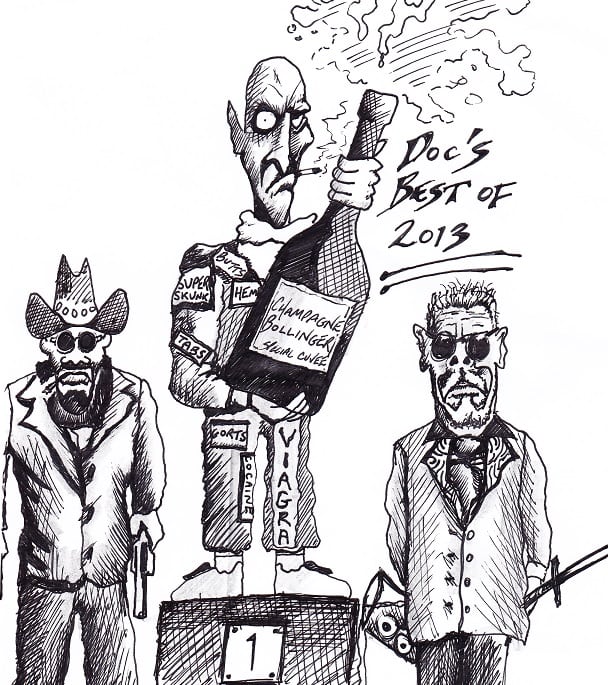
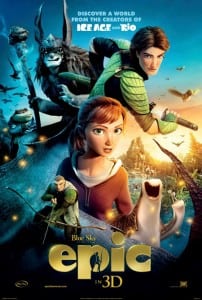
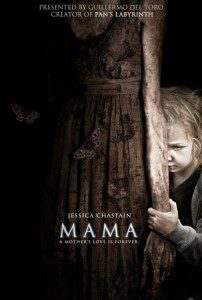
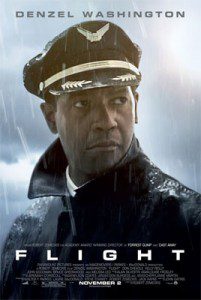
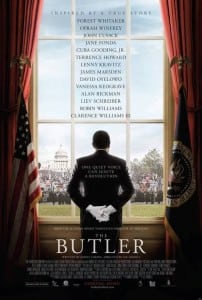
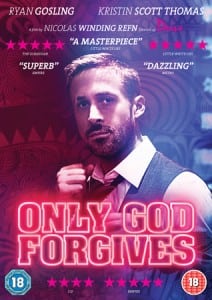
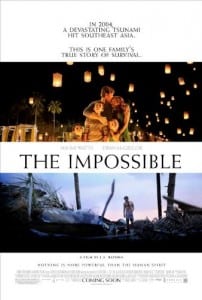
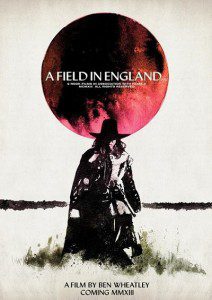
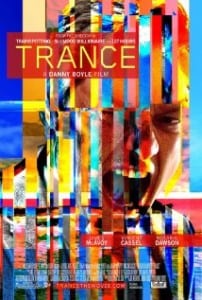
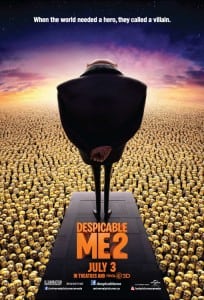
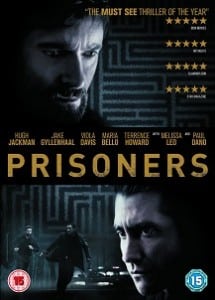
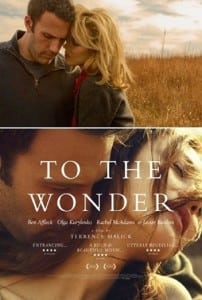
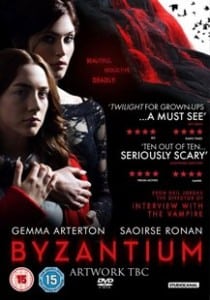
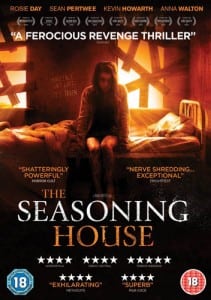
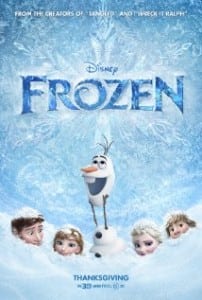
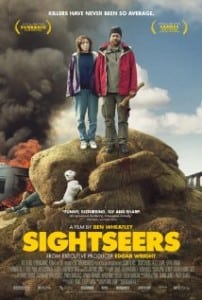
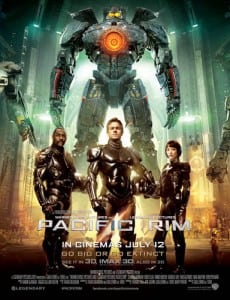
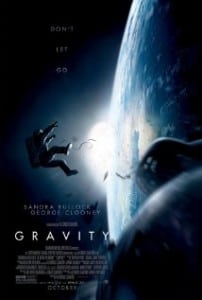
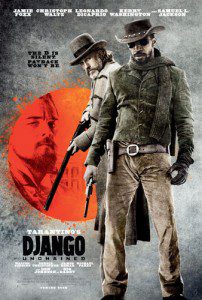
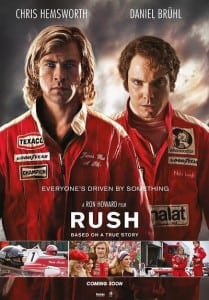
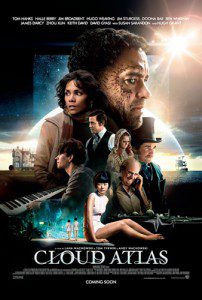

Be the first to comment